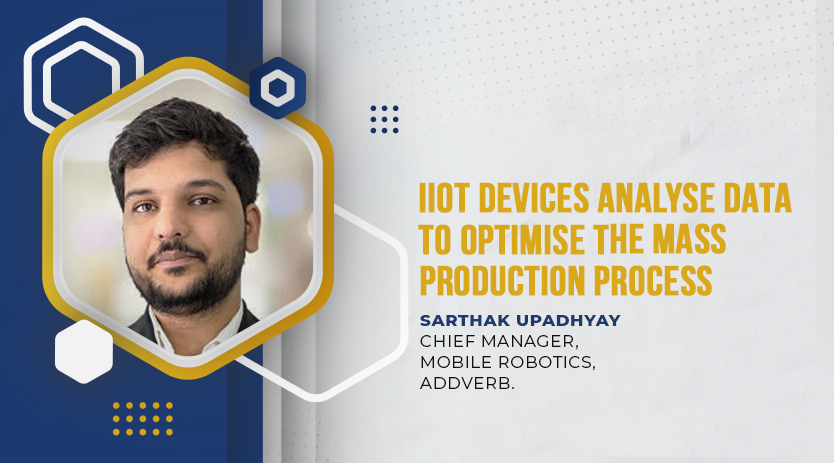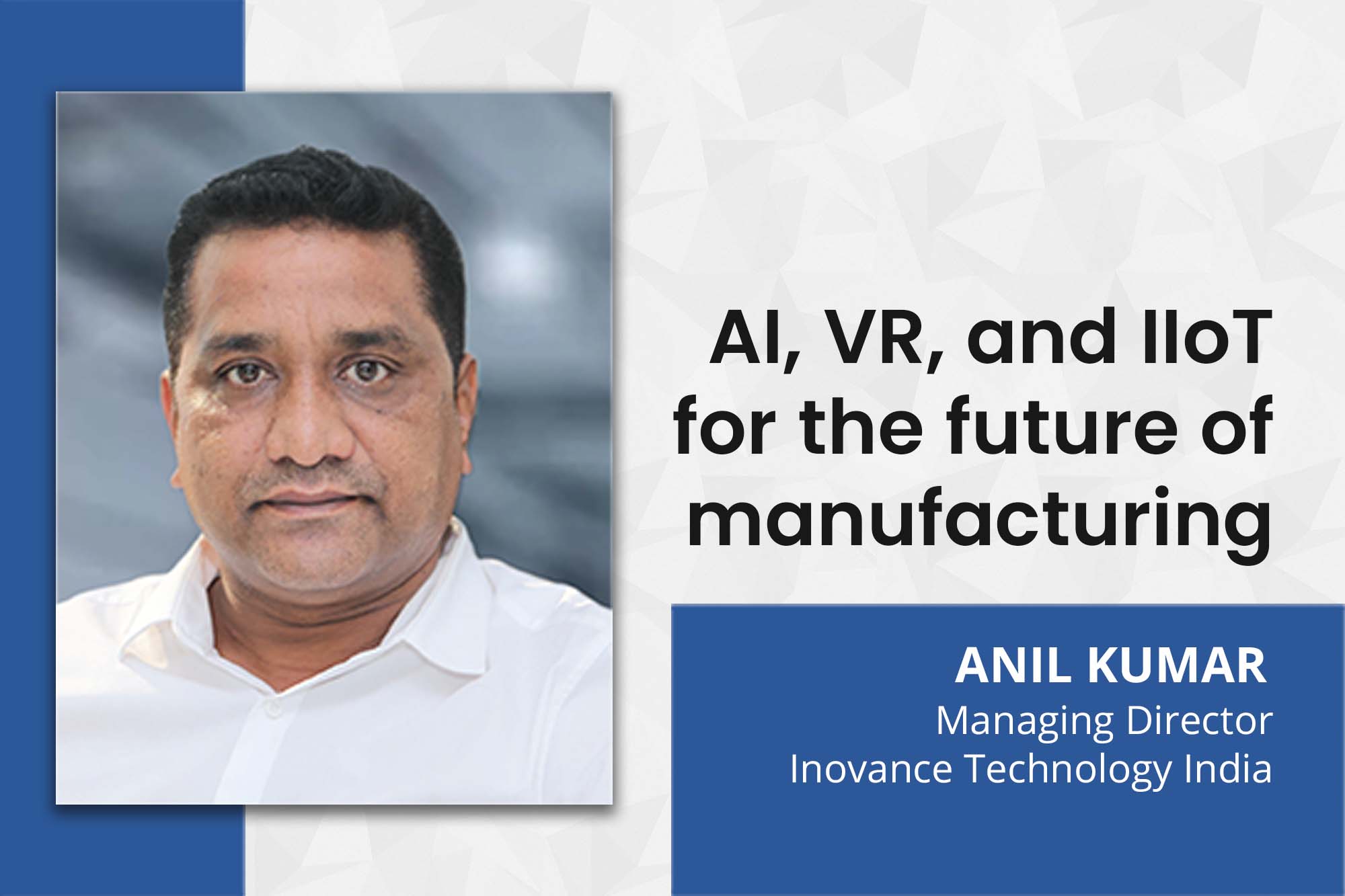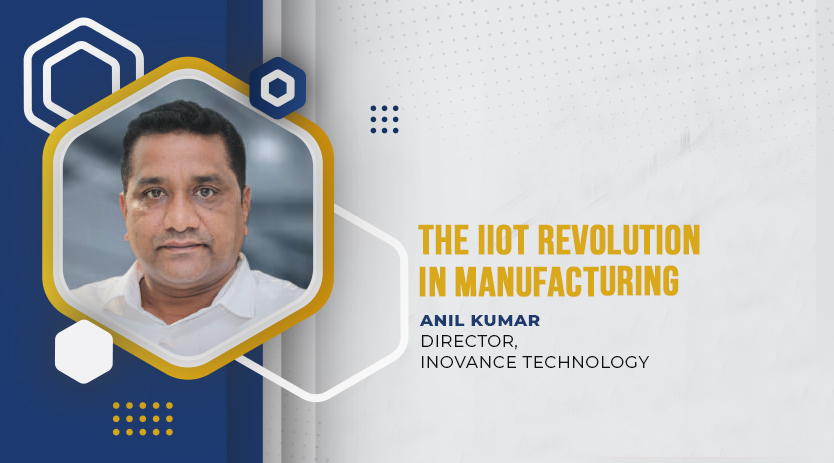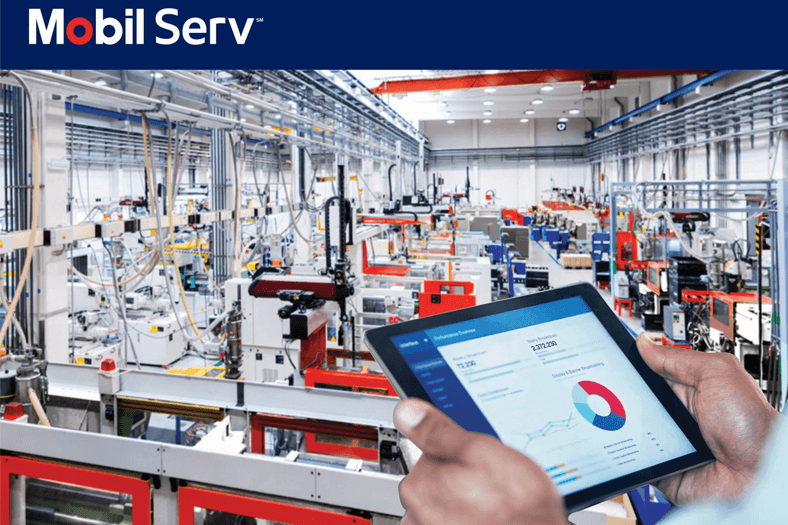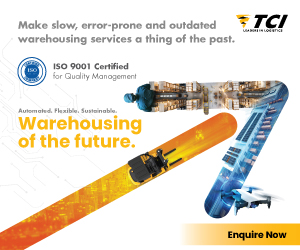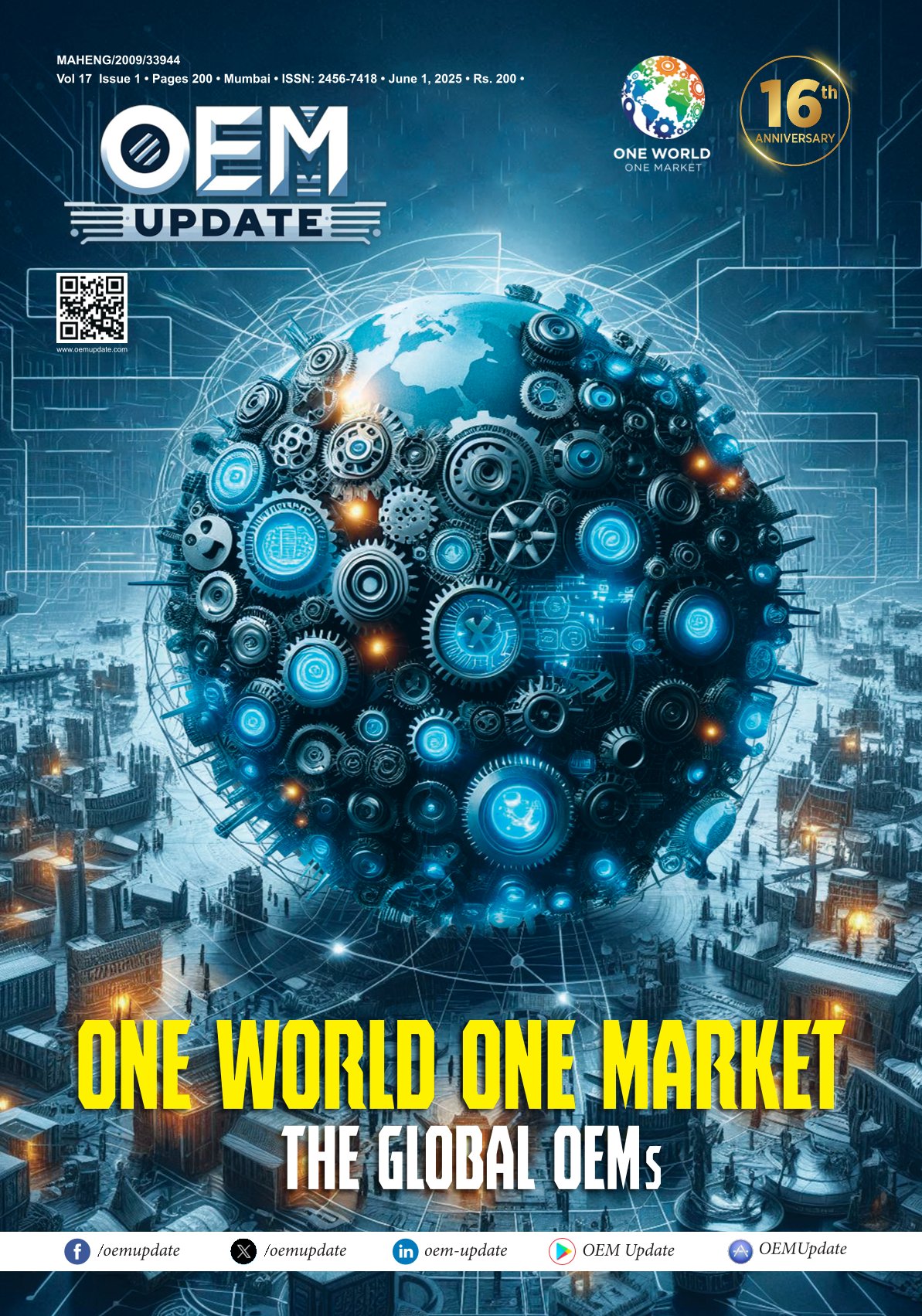IIoT devices analyse data to optimise the mass production process
By OEM Update Editorial September 30, 2023 2:49 pm IST
Sarthak Upadhyay, Chief Manager, Mobile Robotics, Addverb, asserts that smart technologies have proven beneficial for manufacturers in maintaining efficiency and increasing productivity to remain competitive in the ever-evolving market.
How has the integration of IoT devices with AI impacted smart manufacturing operations?
With the advancements in the technological landscape, it has become increasingly vital for manufacturers to incorporate cutting-edge technologies such as IoT devices and robotics into their manufacturing operations. These technologies play a crucial role in improving communication and storing and managing data across a network of interconnected machinery.
IIoT devices enhance machine vision, monitor inventory levels, and analyse data to optimise the mass production process. IoT devices and sensors collect data from various sources, including machines, equipment, and assembly lines.
AI-driven insights are instrumental in predictive maintenance, optimising resource utilisation, waste reduction, and enhancing production quality. Algorithms powered by AI can rapidly process and analyse inputs to identify patterns and trends, providing manufacturers with insights into the functioning of their production processes. Additionally, AI facilitates efficient real-time data analysis.
The integration of smart technologies has proven highly advantageous for manufacturers by enabling them to maintain efficiency and boost productivity, thus enabling them to stay competitive in the constantly evolving market.
In what ways do ASRS and robotic systems optimise vertical storage, enhancing space utilisation?
Automated Storage and Retrieval Systems (ASRS) and robotic and shuttle systems employ key strategies to enhance space utilisation in vertical storage. Firstly, they utilise tall storage racks that fully exploit vertical space, reducing the necessity for extensive horizontal storage areas.
Secondly, the cranes or shuttles within ASRS systems are exceptionally precise in storing and retrieving materials from specified locations, ensuring dense and efficient item storage. This precision in placing items reduces wasted vertical space. Moreover, ASRS systems can dynamically adapt the storage of goods based on demand, ensuring that frequently accessed items are stored at easily reachable heights, further optimising vertical space. Additionally, these systems eliminate the need for wide human-operated aisles, traditionally required for navigation, allowing for more storage within the same footprint.
Lastly, ASRS systems provide quick and efficient access to goods, reducing the time required for retrieval and minimising the need for excess storage to accommodate slow retrieval processes.
How does IIoT enhance predictive maintenance in manufacturing and contribute to cost savings through proactive management?
The Industrial Internet of Things (IIoT) is revolutionising maintenance practices in manufacturing by implementing predictive maintenance. Predictive maintenance using IIoT relies on continuous sensor-based data monitoring within machinery. These installed sensors track real-time parameters, including temperature, vibration, pressure, and performance metrics. This collective data enables anticipation of maintenance needs earlier, ultimately reducing unexpected equipment breakdowns.
Furthermore, the decrease in unplanned breakdowns alleviates financial burdens for manufacturers and ensures the sustained efficiency and productivity of operations, ensuring smooth continuity. It also contributes to extending the lifespan of equipment and machinery, which, in turn, diminishes the likelihood of accidents and injuries for the workforce, as equipment can be replaced or repaired on a scheduled basis.
In addition, predictive maintenance streamlines the management of spare parts inventory. It provides clear indicators of which components will likely require replacement soon, empowering manufacturers to maintain an efficient and cost-effective spare parts inventory. This minimises excess inventory and the associated costs while enhancing safety and reliability. Ensuring that equipment is in optimal condition reduces the risk of accidents and bolsters overall operational dependability.
Moreover, predictive maintenance facilitates a more efficient allocation of resources. By incorporating maintenance activities into the production schedule, resources like labour and materials are utilised more effectively.
What benefit does AI-driven defect detection offer regarding precision during the inspection process?
AI-powered defect detection offers numerous benefits, primarily enhancing precision during inspection. These AI algorithms have been trained on extensive datasets, enabling them to identify even subtle or complex defects with high accuracy. Furthermore, AI systems maintain consistent performance, unlike humans, who can be influenced by fatigue or distractions. This ensures that defects are consistently and accurately identified on every occasion.
Moreover, AI improves scalability, enabling the handling of larger workloads without incurring additional costs. AI maintains objectivity in its assessments, eliminating arbitrary judgments to ensure that error identification is consistently based on precise parameters. As quality standards change, AI models can be adjusted based on new information and user feedback, improving error detection accuracy.
How will the integration of IIoT in manufacturing reshape the growth of the manufacturing industry?
The Industrial Internet of Things (IIoT) is a technology designed to transform the manufacturing industry, particularly when the demand for smart factories is rising globally. IIoT facilitates real-time data exchange through improved connectivity and communication, increasing productivity and efficiency.
Furthermore, IIoT enhances production processes by harnessing data insights, producing higher-quality goods and improved throughput. It also simplifies inventory management, ensuring accurate restocking and reducing excess inventory. Additionally, IIoT provides advantages in quality control, error reduction, and energy efficiency.
IIoT further offers end-to-end visibility in the supply chain, facilitating logistics optimisation and timely deliveries. It enables greater customisation and personalisation in manufacturing to meet individual customer demands. Moreover, real-time monitoring of conditions and equipment status enhances safety and compliance.
What challenges are manufacturers facing while implementing IIoT technologies in their production processes?
Advanced technologies often come with challenges. Manufacturers are using IIoT also have challenges in their production processes, such as:
High Initial Costs: Incorporating IIoT includes integrating new hardware, software, and infrastructure changes, which can result in a substantial initial implementation cost. Smaller manufacturers may need more capital and available resources.
Security Concerns: With a vast amount of data, maintaining data privacy becomes critical. Given the high level of connectivity in IIoT, the primary risks revolve around cybersecurity threats. Safeguarding sensitive data and ensuring security becomes a significant challenge.
Skill Gap: The successful implementation of IIoT requires a skilled workforce. Training existing employees for skill enhancement or hiring new talent with the required skills can pose a challenge for manufacturers.
Infrastructural Challenges: Many manufacturing facilities still operate with outdated systems and machinery, making it challenging to integrate IIoT solutions seamlessly. It can be difficult and time-consuming to integrate new technologies with the infrastructure that already exists.
What are the technological, ethical, and practical challenges and opportunities associated with adopting your innovations in healthcare?
Robotic technologies have brought about a revolution in various medical procedures worldwide, and one of the most widely adopted applications is the use of telerobotic ultrasound. This groundbreaking innovation allows for remote ultrasound procedures, utilising wired and wireless ultrasound procedures.
An excellent illustration of this pioneering technology is the partnership between Addverb, AIIMS Hospital, and IIT Delhi, particularly during the challenging COVID-19 pandemic. Given the heightened risks of healthcare professionals being near infected patients, traditional ultrasound procedures presented a significant danger. Over roughly 7-8 months, the team diligently refined and perfected this technology.
Telerobotic ultrasound enables radiologists to control the ultrasound probe from a secure remote location. The patient’s images are transmitted to the doctor’s monitors through a Wi-Fi network. This allows the doctor to interact with the patient and observe all the acquired images.
Cookie Consent
We use cookies to personalize your experience. By continuing to visit this website you agree to our Terms & Conditions, Privacy Policy and Cookie Policy.



